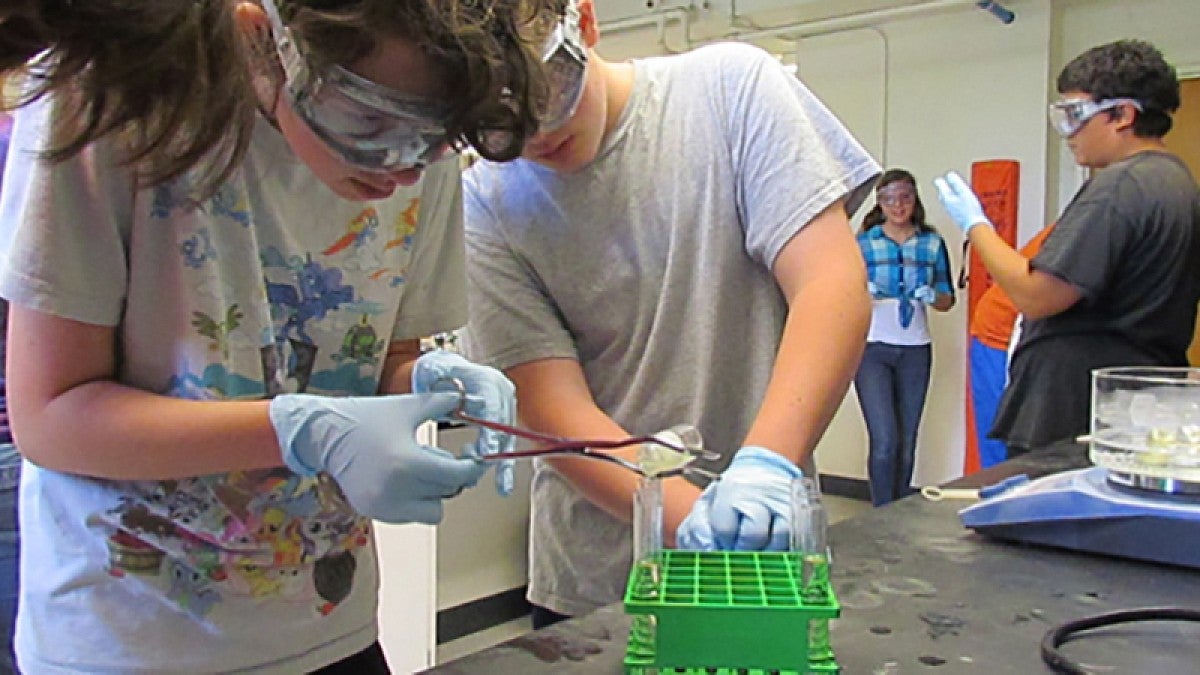The UO Summer Academy to Inspire Learning, known as SAIL, is going statewide.
The college access program, aimed at getting middle and high school students from underrepresented backgrounds interested in higher education, has received a major funding boost.
A three year, $225,000 commitment from UO President Michael Schill will enable the program to expand its reach across the state and let participating students stay on campus during their week-long summer programs.
The goal of SAIL is to expose students from underrepresented backgrounds, including lower-income and first-generation homes, to college life and encourage them to pursue higher education.
RELATED LINKS
SAIL launches 500 students on a course toward college
SAIL summer classes mix learning with inspiration
SAIL program draws visit from NYT columnist and author
DuckFunder's first campaign scores a big win for SAIL
To donate to SAIL, contact Executive Director Lara Fernandez at laraf@uoregon.edu or visit the SAIL website.
SAIL, now in its 14th year, takes place during the summer months on the UO campus. Middle and high school students participate in week-long programs in one of 18 areas of study, including biology, product design, performing arts, environmental studies, physics and human physiology.
Additionally, during the academic school year, SAIL provides college preparatory mentoring services in local schools, using college students in a near-peer model.
To date, students have come mostly from Lane and surrounding counties, and they spend the day on campus before returning home each afternoon.
The SAIL program has always been offered free to students, with most funding for the program coming from private donations. Now, with funding from Schill’s office, SAIL can expand its reach.
The new funding addresses a long-term goal of SAIL to house and feed rising high school juniors and seniors at campus residential halls while also allowing the program to expand its reach to middle and high schools around Oregon.
“We believe this will provide students a much better simulation of what college life is like by getting to stay 24/7 in the dorms,” said Lara Fernandez, SAIL’s executive director. “This will increase not only diversity and equity efforts across campus but also increase the number of students applying to higher education and hopefully the University of Oregon.”
What makes SAIL work is the commitment from faculty members who volunteer their time to teach these students in the summer, Fernandez said. Close to 150,000 volunteer hours have accrued in SAIL’s 14 years, she said.
SAIL was founded by economics professors Bruce Blonigen and Bill Harbaugh.
“This is an incredible moment for the program and for the hundreds of faculty and staff who volunteer their time every year to help high school students realize their dreams of going to college,” Blonigen said. “We're so excited that we can bring this life-changing program to students around the state.”
The number of students participating in SAIL has been growing about 30 percent a year, Fernandez said. Last summer, 500 students applied, and 400 students from 39 schools participated. About half were students of color, she said.
This coming summer, Fernandez estimates as many as 600 students will apply to the SAIL program, and as many as 500 will participate.
The percentage of SAIL students who end up applying to college keeps increasing as well. About 96 percent of SAIL students go on to college, and of those, 99.3 percent graduate.
“It’s really been incredible,” Fernandez said.
It’s hard to know how many students will come to SAIL from other parts of the state, but Fernandez said she’s hopeful.
“We’re hearing from so many places along the coast and pockets of schools in Portland that are just beside themselves excited about this opportunity,” she said.
The other development around SAIL is that it will now be a part of the Division of Undergraduate Studies. Up until now, SAIL has been housed in the economics department.
“We are one step closer to becoming a sustainable program,” Fernandez said.
—By Tim Christie, University Communications


